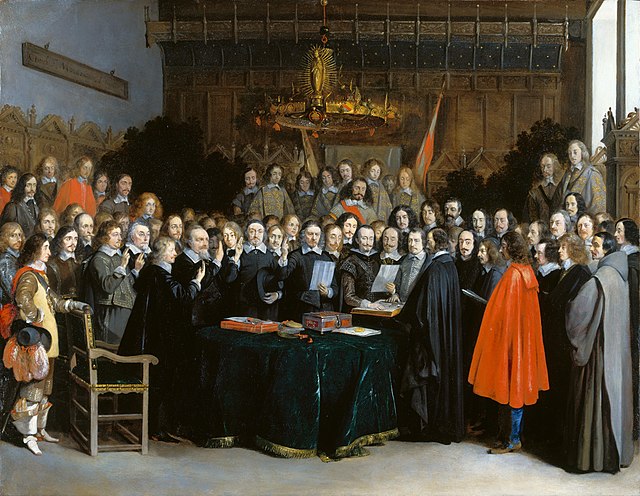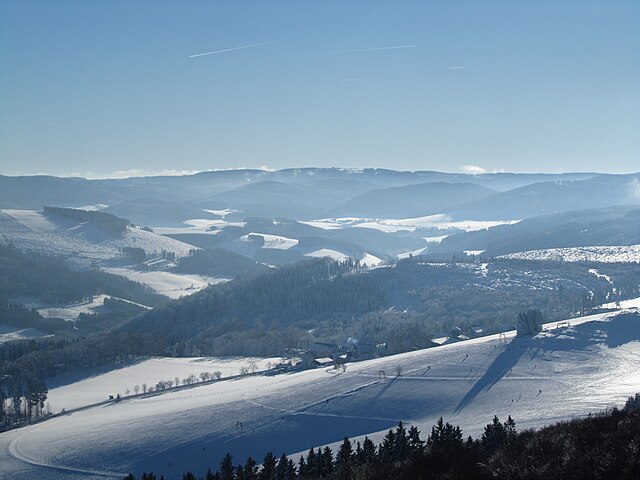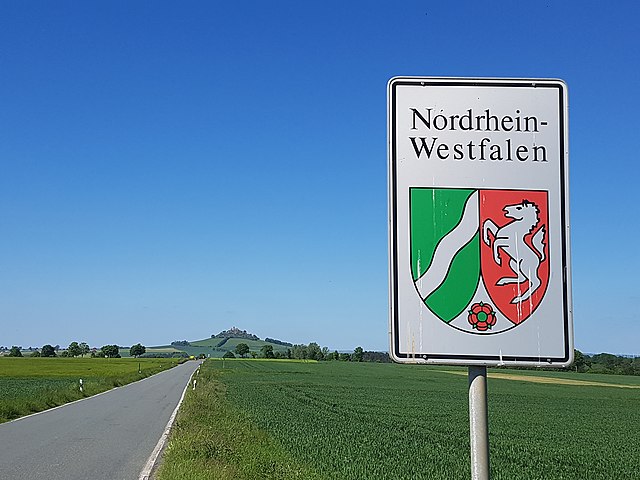North Rhine-Westphalia or North-Rhine/Westphalia, commonly shortened to NRW, is a state (Land) in Western Germany. With more than 18 million inhabitants, it is the most populous state in Germany. Apart from the city-states, it is also the most densely populated state in Germany. Covering an area of 34,084 square kilometres (13,160 sq mi), it is the fourth-largest German state by size.
Ratification of the Peace of Westphalia of 1648 in Münster by Gerard Terborch
The highest peaks in North Rhine-Westphalia are located in the Rothaar Mountains.
State border with North Rhine-Westphalia near Warburg; in the background the Desenberg, with 345 m landmark and highest point in the Warburger Börde near the border triangle NRW - Hesse - Lower Saxony
Cologne
Low German is a West Germanic language spoken mainly in Northern Germany and the northeastern Netherlands. The dialect of Plautdietsch is also spoken in the Russian Mennonite diaspora worldwide.
City limit sign in Lower Saxony showing that Low German is closer to English: "Altenbruch" (Standard German) "Olenbrook" (Low German), meaning "old bog/swamp" (incorporated village of Cuxhaven).
Low German-speaking area before the expulsion of almost all Low German- and German-speakers from east of the Oder–Neisse line in 1945. Low German-speaking provinces of Germany east of the Oder, before 1945, were Pomerania with its capital Stettin (now Szczecin, Poland), where east of the Oder East Pomeranian dialects were spoken, and East Prussia with its capital Königsberg (now Kaliningrad, Russia), where Low Prussian dialects were spoken. Danzig (now
A public school in Witmarsum Colony (Paraná, Southern Brazil) teaches in the Portuguese language and in Plautdietsch.
Low German dialects around the world








